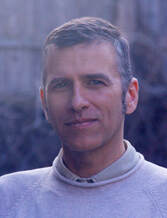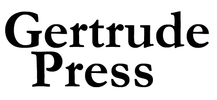“Within You, Without You”
Review of Hard Some by Hailey Higdon
|
Four poems, each spread out a few lines at a time, over several pages, each ending with a line of a song (by Leonard Cohen, Patty Griffin, Blood Orange, and Neil Young) comprise Hailey Higdon’s spare, introspective collection Hard Some. In these poems Higdon takes hard, unflinching looks at herself: the roots of her ways of thinking, her behavior in relationships, and her ideas about what happens when we die.
“A Wild Permanence” begins like the setup of a joke: “Two women walk into a town.” What emerges is a moving story of two lesbians trying to make a life for themselves, moving from place to place, from small town to small town, to increasingly isolated regions in nature, even resting for a moment in the cab of a truck. There is a sense beyond the words of this poem that the women are young and in love, and don’t need much else beyond each other, yet an understanding is beginning to dawn that the world isn’t so hospitable to same-sex love. For now, the women are accustomed to a youthful kind of slumming it: “looking to see what’s in the garbage can / because we are young and curious and just want to know.” But the need to find a home and something to sustain them is great: “So here we are digging, digging / until we’re wild, find water.” The narrator interrupts her own story (and the poet interrupts her own line of poetry) to say, “As an American I want to talk about myself,” and resumes again on the next page, “Two women walk into a town,” as if to start again, to try to assert a simple narrative, or retell the same story until she arrives at the iteration with a happy ending. The starting over mirrors the way the two women in the poem keep moving, and keep trying to fit in. A line like “We tried for neighborly” might suggest the way that gay people try to blend in in small towns, places where “violence [is] used in relation to purity,” where “two women go to places inhabited by risk.” The narrator asserts “We are here” (and perhaps in between the lines, we are queer, get used to it), “permanent & wild with / that community of moving target, that community / that says you are better off real imaginary and real far away.” When people “figure it out”—discover that the women are gay—“between us evaporates.” The couple no longer feels safe to be a couple. “[W]e are scuffmarks on floorboards / a wild permanence”—something unwanted, perhaps an accident that most people would work to scrub out, albeit with great difficulty.
“Breaker” compares a relationship to something safe and confined, like a lake, whereas the narrator feels like something wild, like the sea. (“Fuck the lake,” the poem begins, as if in evidence of the narrator’s testiness.) The title evokes a wave, of course, but also suggests the command “break her.” Certainly the narrator breaks down her lover (“Most / relationships I’ve had I’ve / been you / a fan”), along with their relationship, calling it “the place where / a creature and its shadow are connected.” A creature, not a person; there’s a sense that a relationship is somehow not humane. The narrator lists her grievances, such as, “we take turns enjoying / but never quite experience together.” This suggests sexual fulfillment, and also not being on the same page. “How many times do we try something new / and before it feels comfortable / retaliate,” the narrator wonders. The narrator admits that “things get better” when “boundaries form,” but they increase her desire for freedom and wildness. “What the fuck is domestic / suffering?” the narrator snarls, and you can see the way she’s cornered herself. There is a sense that, for all her strength (“I imagined vulnerability was liability”), she is the one broken by the experience of the relationship. The narrator points to all the other things that are broken—sexual bond, communication, her lover—but ultimately, the thing the narrator breaks down is herself.
|
The narrator points to all the other things that are broken—sexual bond, communication, her lover—but ultimately, the thing the narrator breaks down is herself. “Children” explores the roots of our traumas, and how these traumas are activated by relationships. “Some run,” the poem notes. But for other people, relationships provide the means to heal these traumas: “Things happen / in pairs / and define each other.” We see ourselves mirrored in our partners, and can perhaps identify our shadows there. But relationships also bear the brunt of our suffering. In relationships, we often tiptoe around one another (“The floorboards ask you to step lighter”), and relationships don’t always last (“You were the rainbow / it was impermanent”).
“Yes & What Happens” explores the question of an afterlife. “I believe we come back,” the narrator ventures, and lists all the reasons why. The poem is a summing up of who the narrator is, and also addresses her regrets: “It came from a sad place all that wronging / all that doing it to someone else.” It’s a kind of reckoning of the ways she’s lived her life, from her independence (“I lugged solitude from place to place”) to her hardness (“What thirsty ways I’ve tried to out fox / the books about softening”), and perhaps articulates her own ideas about heaven: “to be as queer as you are without boundaries.” Like the poems before it, “Yes & What Happens” beautifully and movingly explores the idea of the individual inside and outside of relationship (“The rivers of the world become the sea and they / were also rivers, tied to each individual place”). In its closing, the narrator, alone, realizes she isn’t alone. She has more than her memories of her relationships. She has the evidence of the ways that they have changed her. And she bears witness to her own experience by just sitting with it, perhaps feeling the presence of her higher self, a hard-earned kind of with-ness that comes from a deep knowing of oneself. The final lines root life in its everyday domestic picture, chores on a weekend afternoon, while at the same time elevating life in terms of destiny and fate, when seemingly out of nowhere, unbidden, clarity arises and pierces the mundane: “Thank you for waiting, incurring the damages which were going to happen, I’ve been told everything was always going to happen, and away from you and near you are the same thing, and it was Sunday, and I did laundry, and you were all there, all my changes, all my changes were there.” The poems in Hard Some mysteriously invite us to reflect on something almost spiritual: the ways that relationships change us. It is in our capacity to love that our transformation lies. To hurt the people we love, and to make amends; to understand our capability to hurt the people we love, and to resist hurting them. This is how we are changed; this is how we change. 
REVIEWED BY MICHAEL QUINN
Michael Quinn interviews authors and reviews books for Publishers Weekly, for the Adroit Journal, and for his own website, under the heading “Book Report.” His reading list for the reviews he’s not assigned is determined by interest, whim, and chance—and by what’s available at the Brooklyn Public Library. |
